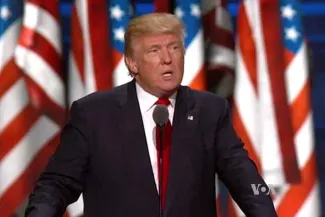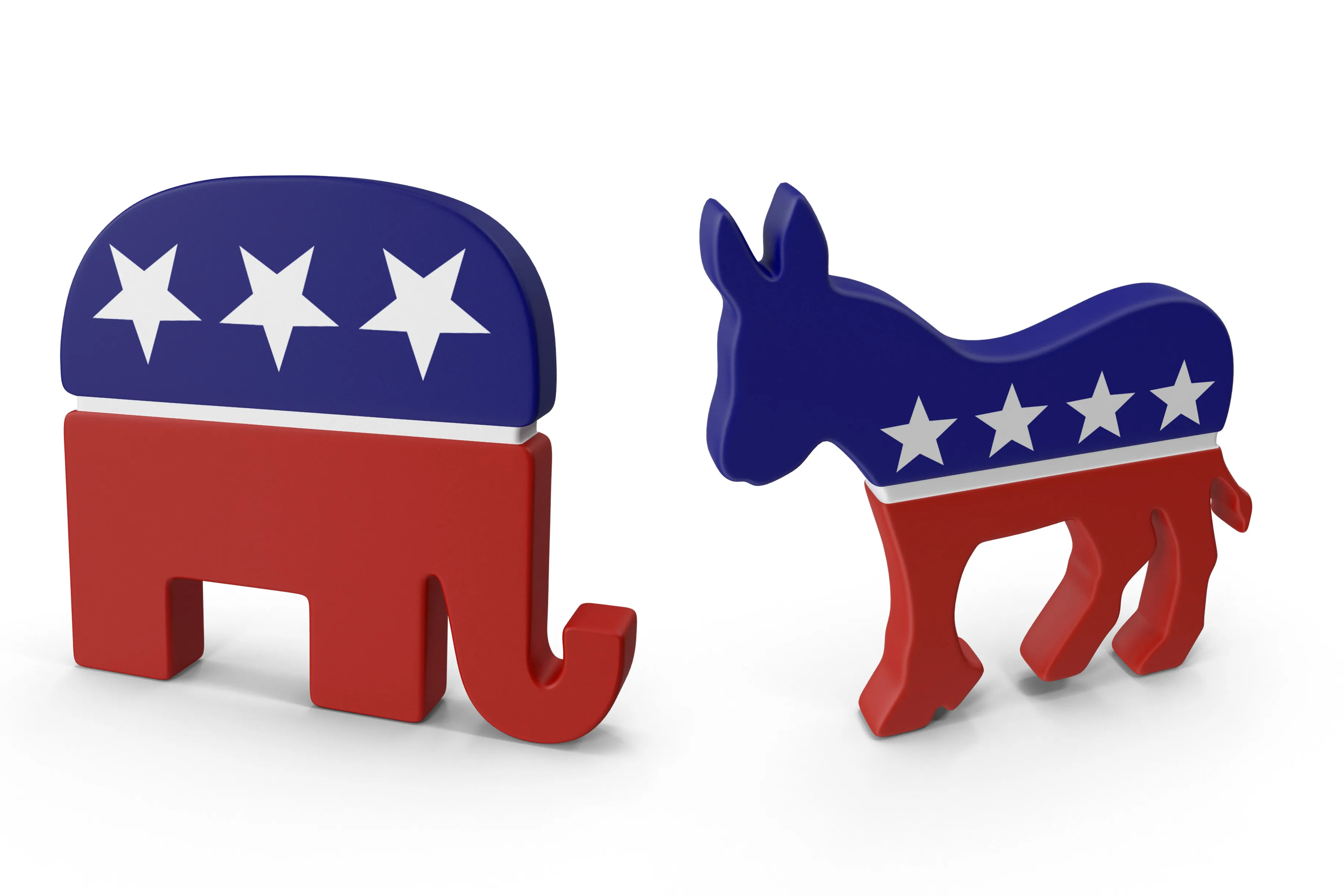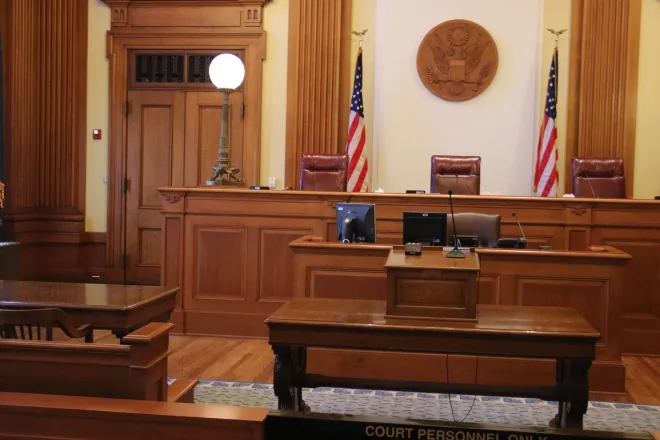
What happens to a school that refuses to obey the Trump ban on transgender athletes?
President Donald Trump’s recent executive order prohibiting transgender athletes from competing on women’s sports teams consistent with their gender identity raises complex questions about enforcement mechanisms and consequences for schools that do not comply.
The executive order, part of Trump’s broader anti-trans agenda, rescinds federal funds from “educational programs” if schools fail to adhere to the ban.
The administration is asking federal agencies to interpret Title IX — a federal civil rights law barring schools that receive federal funding from practicing sex-based discrimination — in a way that complies with the order.

President Donald Trump. Courtesy Voice of America.
“The war on women’s sports is over,” Trump said at a crowded Feb. 5 executive order signing ceremony in the White House.
“We’re putting every school receiving taxpayer dollars on notice that if you let men take over women’s sports teams or invade your locker rooms, you will be investigated for violations of Title IX and risk your federal funding — there will be no federal funding,” he said.
The order asks the secretary of Education to “take all appropriate action to affirmatively protect all-female athletic opportunities and all-female locker rooms” — going beyond just women’s sports teams and including locker rooms used for physical education classes.
Trump’s effort also came as an increasing number of states have passed laws banning trans students from participating in sports that align with their gender identity.
At least half of all states have enacted a law that bans trans students from taking part in sports that align with their gender identity, according to the Movement Advancement Project, an independent think tank.
Many others, led by both Democrats and Republicans, have not taken that step.
The Human Rights Campaign, an LGBTQ+ advocacy group, has noted that there has been “considerable disinformation and misinformation about what the inclusion of transgender youth in sports entails” and that trans students’ sports participation “has been a non-issue; many states, athletic organizations, and governing bodies successfully balanced fairness, inclusion, and access to play without any problem.”
‘Extremely broad’
But lawyers and Title IX experts told States Newsroom it remains to be seen how exactly schools across the country will enforce the executive order and how the administration would rescind federal funds for any schools failing to adhere.
Shiwali Patel, a Title IX expert and senior director of safe and inclusive schools at the National Women’s Law Center, said the “blatantly discriminatory” order is “extremely broad” and raises “a lot of questions.”
“It touches educational institutions, it touches international competitions, it touches immigration of trans women athletes, it calls for these convenings, it calls for state attorneys general to identify some enforcement mechanisms,” Patel said.

The order asks the assistant to the president for domestic policy to bring together state attorneys general to “identify best practices” in enforcing the ban.
The assistant is also responsible for bringing together “representatives of major athletic organizations and governing bodies” to promote such policies regarding trans athletes’ participation in women’s sports.
Elana Redfield, a lawyer and federal policy director at the Williams Institute at the University of California, Los Angeles School of Law, which focuses on laws and policies affecting LGBTQ+ people, pointed out that the executive order “contains kind of broad language, including addressing locker rooms.”
“So, it suggests that any kind of space … for example, PE classes or locker rooms for use in elementary and high school, middle schools as well — those kinds of spaces would be affected,” she said.
Kelli Rodriguez, assistant dean for academic affairs at Seattle University School of Law, said it’s going to be “really confusing for a while” and “a lot of waiting and seeing.”
Rodriguez, who is also the director of sports law at Seattle University School of Law, said “the one thing that’s different is that the executive order calls for, potentially, ramifications or punitive actions if institutions don’t comply.”
“I don’t know what that means yet, I think that’s one of the things that’s kind of outstanding — we’ll see what that means from an enforcement standpoint,” she said, noting that she thinks many schools right now are “very anxious” for what exactly those punitive actions would look like when it comes to federal funding.
Rodriguez also said she expects to see state attorneys general, individual athletes, parents of athletes and institutions challenge the executive order.
Breaking down Title IX
Redfield noted that Title IX is a spending clause type of legislation, which “gives the federal government enforcement power by giving grants to agencies, and then withholding those grants if the law is violated.”
“The Trump administration is sort of referencing things that are out there as a way to try to provide support for their position on the definition and meaning of Title IX, but ultimately, this is going to probably be decided by Congress or a court or both,” she added.
The House passed a measure in January that would bar trans students from participating on women’s school sports teams consistent with their gender identity.
The legislation would also amend Title IX so that “sex shall be recognized based solely on a person’s reproductive biology and genetics at birth.”
A similar measure from last session was reintroduced in the Senate in January, but the effort would likely need the backing of at least 60 senators to advance past the filibuster.
New investigations
Meanwhile, shortly after Trump signed the executive order, the Education Department announced investigations into two universities and an athletic association where they say “violations of Title IX have been reported.” Those under investigation include: San Jose State University in California; the University of Pennsylvania in Philadelphia; and the Massachusetts Interscholastic Athletic Association.
Following the executive order, the NCAA also announced last week that the organization would update its transgender student-athlete participation policy to limit “competition in women’s sports to student-athletes assigned female at birth only.”
Colorado Newsline is part of States Newsroom, a nonprofit news network supported by grants and a coalition of donors as a 501c(3) public charity. Colorado Newsline maintains editorial independence. Contact Editor Quentin Young for questions: info@coloradonewsline.com.
















